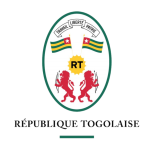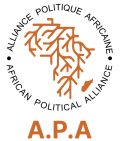Conduct of the Forum
The first edition of the forum will take the form of five (05) panels moderated with a facilitator in attendance of personalities.
Each panel will be followed by a discussion open to all participants.
The five panels will address the following themes:
1. Factors of fragility of state institutions in Africa
Panel I will discuss “factors of fragility of state institutions in Africa.”
Inequality and poverty are fuelling social tensions and will only worsen in the face of unprecedented demographic growth. As well as economic and social inequalities that will have to be addressed and resolved politically.
The separation of the powers is weakened in many African States: the absence of a proven independence of justice impacts the credibility of institutions and suspicions on the management of the public good.
- What are the real structural weaknesses and how to identify institutional levers ?
- How to move from the control of power to the support of national institutions ?
2. Political and security challenges inhibiting the transition to democratic governance
Panel II will discuss “political and security challenges inhibiting the transition to democratic governance.”
Terrorism and armed conflict weaken state institutions and undermine public security. Countries in political transition are directly affected as they put effort on fighting terrorism and manage instability. The capacity for reform is impacted.
The response to conflicts and violence acts through three dimensions “fight against terrorism – governance – development”.
- Would the implementation of specific pacification actions by the government be enough to ensure community and national reconciliation, in the light of community conflicts ?
- Should political dialogue with extremist movements be considered ?
3. Building strong institutions and the rule of law in Africa
Panel III will discuss how “Building strong institutions and the rule of law in Africa.”
The State becomes as warranter of citizens’ fundamental rights within a framework of transparency and participation.
Nevertheless, the access to political affairs remains selective in many African countries – often creating a vicious circle, where any substantial change is perceived as a threat to staying in power.
- How to ensure that the Governments act to provide social justice, values such as equality and tolerance, providing access to essential needs and acting as a guarantor of fundamental rights ?
4. International and sub-regional organizations: what role in supporting transitions?
Panel IV will analyse the role “International and sub-regional organizations can play in supporting transitions.”
ECOWAS and ECCAS have certainly ensured political and social stability in the region, which has been strengthened over the years. However, they have not been able to adequately anticipate and manage political crises in the Sahel region.
The African Union is overwhelmed by operational difficulties and decision-making is out of step with the dynamics of the continent. Disparities between Member States affect the Pan-African institution.
- Is the multilateral system providing the support required and needed by states or the aspired support ?
- How to manage the blurring of bilateral agendas with the multilateral system ?
5. African solutions: mobilising continental innovation and agility
Panel V will analyse how to “mobilize African innovation and agility.”
Thinking about African solutions opens spaces for innovative economic reflections such as the harmonisation of the internal market, investment in research, development and technology, an African agricultural policy, effective control of mineral resources.
- What are the factors that prevent drawing inspiration from African history and cultures to design specific institutional models, without resorting to exogenous solutions ?
- Could identity issues in Africa constitute an obstacle in the search for African solutions ?




